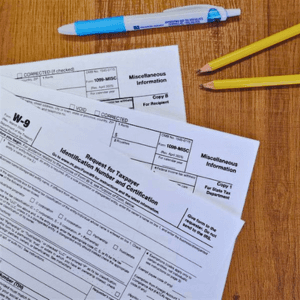A Turning Point for Montana’s Tax System
Montana’s 2025 legislative session brought sweeping tax reforms that begin taking full effect in 2026. The new system promises lower rates and simpler brackets — but it also ties the state much more closely to federal rules. For many households, that’s a mixed bag.
While middle- and higher-income filers may see some relief, others — especially those who previously benefited from Montana’s more generous itemized deductions — could find their state taxes creeping higher even as rates fall.
⸻
College Savings Subtraction Increases for 2026
Under House Bill 845, the subtraction for contributions to Montana’s 529 college savings plans increases to $9,000 for married couples filing jointly ($4,500 for all others) in 2025. These limits are now indexed to inflation, rising to $9,200 and $4,600 in 2026.
Recent federal law changes expand how 529 funds can be used, but those do not affect Montana’s subtraction. The state benefit still applies only to qualifying contributions, and that basic rule hasn’t changed.
⸻
Lower Rates, Wider Brackets — and New Trade-Offs
House Bill 337 restructures Montana’s income tax brackets beginning in 2026:
Filing Status | 4.7% Rate Applies Up To 5.65% | Rate Applies Above |
|---|---|---|
Married Filing Jointly | $95,000 | $95,000+ |
Head of Household | $71,250 | $71,250+ |
Single / Separate / Trusts | $47,500 | $47,500+ |
The top rate drops from 5.9% to 5.65% in 2026 and further to 5.4% in 2027. On paper, that looks like a tax cut. But at the same time, Montana now uses federal taxable income as its starting point — and that’s where many filers will feel the difference.
⸻
Why Federal Conformity Matters
In past years, Montana allowed many taxpayers to itemize separately from their federal return, which often meant claiming deductions that didn’t meet federal thresholds. A common example:
• Health insurance premiums, which Montana allowed in full, were not limited by the 7.5% of AGI floor used federally.
Under the new conformity rules, that flexibility disappears. If you don’t itemize on your federal return, you can’t itemize on your Montana return — even if your state-level deductions would have been larger.
The result: some lower- and middle-income households who historically itemized on Montana (but took the federal standard deduction) will likely see higher state taxable income, partially offsetting the benefit of lower rates.
⸻
Refundable Credits and Offsets
One bright spot is the Earned Income Credit, which doubles from 10% to 20% of the federal amount starting in 2026. That will help offset some of the conformity effects, but for many households, it won’t fully replace the value of lost itemized deductions.
⸻
What to Review Before 2026
• Estimate your new state tax liability under federal conformity — especially if you used to itemize.
• Re-evaluate charitable giving and medical expense timing. Some deductions may be less valuable at the state level going forward.
• For small businesses and farms: check entity structure and depreciation timing. Deferring income into 2026 could still help capture lower rates.
⸻
The Bottom Line
Montana’s 2026 tax changes simplify the system but shift who benefits. Fewer brackets mean fewer ways to plan around them — and tighter alignment with federal law means less room to customize your return to your actual circumstances.
For some, it will mean cleaner filings and smaller checks to Helena. For others, particularly those who used to itemize generously on the state side, it may mean giving a little more back despite the “tax cut” headlines.
As always, the best strategy is to plan early, not react later. Our team at Swanson Agency is reviewing 2025 returns now to model the 2026 transition and help Montana families and small businesses prepare for the new landscape.


Sandra Vasquez
Last -Minute Tax Steps for Montana Small Businesses
Get your small business ready for year-end with a practical checklist covering expenses, payroll, deductions, retirement contributions, and clean recordkeeping to set up a smooth and accurate 2025 tax filing.


Bjorn Swanson
Quick 2025 1099 Guide for Montana Businesses & Ranchers
Learn the 2025 1099 rules every Montana business and ranch needs to follow—from who gets a form to what payments qualify—so you can file accurately, stay compliant, and avoid January surprises.


Sandra Vasquez
New Rules for the Self-Employed: FSAs, Tips, Mileage, and More
The One Big Beautiful Bill reshaped tax rules for small business owners, self-employed individuals, contractors, and beauticians—opening new opportunities in income, tips, mileage, and healthcare.


